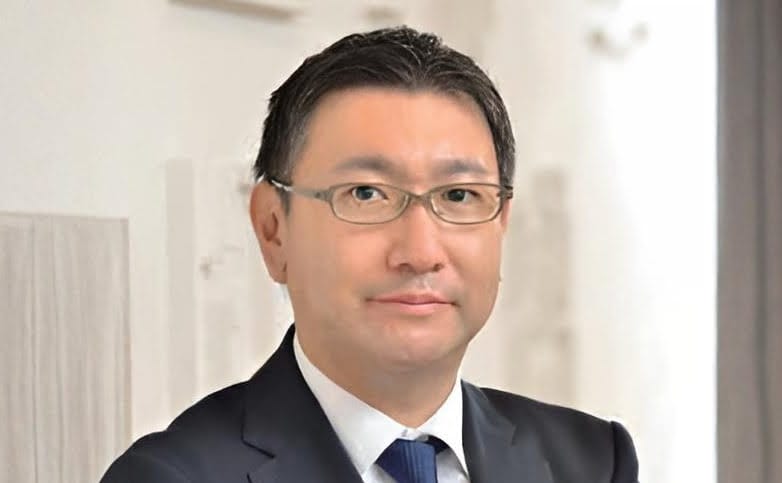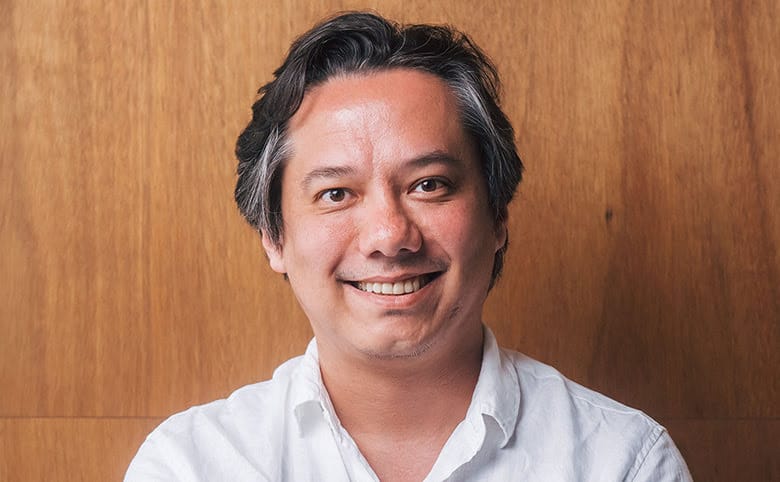
Sam Sakamura, vice president for Japan and Micronesia at Hyatt (Image: Hyatt)
Hyatt Hotels Corp has announced the final closing of a JPY 22 billion ($149 million) fund to invest in development of luxury hot spring hotels in Japan under the Atona brand.
The Atona Impact Fund’s lead investors include Chicago-based hospitality giant Hyatt, building contractor Takeneka Corp and developer Kiraku, a specialist in the traditional Japanese inns known as ryokans, which feature onsen thermal baths. The vehicle’s limited partners include property investor Aratama Corp and MUFG Bank, the companies said in a release.
Each Atona property is expected to offer 30 to 50 guestrooms with a standard size of 50 to 70 square metres (538 to 753 square feet). Amenities will include onsen facilities using hot spring water from the local landscape and restaurants showcasing seasonal ingredients.
“Amidst growing enthusiasm for travel across Japan, the fund aims to identify and invest in unique, high-quality tourism assets, with the ultimate goal of enhancing the long-term value and fostering the sustainable development of Japan’s regional areas,” said Hyatt, which operates in the country under the guidance of Sam Sakamura, vice president for Japan and Micronesia.
Hot for Springs
Founded in 2013 by former Fortress Investment Group analyst Kou Sunberg, Kyoto-based Kiraku teamed with Hyatt in 2022 to launch the Atona brand as a 50:50 joint venture. The chain plans to begin operating in 2026 at three locations in Hakone (a spa town west of Tokyo), Yufu (on Kyushu island) and Yakushima (a remote island south of Kyushu).

Kiraku founder and CEO Kou Sundberg (Image: Kiraku)
“Through the building of hot spring ryokans under the Atona brand across the country, we hope these ryokans will provide guests, both local and from abroad, a special place to experience the still unseen wonders of Japan, while also positively impacting local economies,” Sundberg said in announcing the JV three years ago.
The number of inbound tourists in Japan during 2025 reached 21.5 million by the end of June, on track to surpass 40 million arrivals by year-end and eclipse 2024’s record high of 37 million, according to Savills.
“While occupancy remains slightly below pre-pandemic ultra-tight levels due to labour shortages, improvements in hiring and the adoption of technology to improve operational efficiency point to further upside potential,” the consultancy said in its Japan hospitality report.
After Japan hotel investment reached a record JPY 1.2 trillion last year, preliminary deal volume in the first half of 2025 was down 40 percent year-on-year because of limited opportunities, the report said, noting that the figures were provisional and likely to increase.
Fund Managers Cashing Up
Recent months have seen an upswing in capital raising for Japan real estate vehicles, with banking giant Morgan Stanley last week announcing the final closing of a JPY 131 billion fund with a focus on properties in the residential, office and industrial sectors.
The yen-denominated vehicle well exceeded its original target size of JPY 75 billion and completed its first acquisition in March, with 8 percent of the fund having been committed to date across several residential investments, according to Morgan Stanley Real Estate Investing.
In July, Osaka-based Samty Holdings announced a JPY 58 billion closing for its first dedicated hotel fund holding 10 properties in key cities of western Japan. That same month, Japan’s second-largest life insurer, Dai-ichi Life Holdings, joined with Tokyo-based conglomerate Marubeni to launch a JPY 400 billion real estate investment fund, tapping rising interest in property strategies among domestic institutions.
Reuters reported earlier this month on a plan by Mitsubishi UFJ Real Estate Asset Management to launch a JPY 100 billion fund to invest in Japan real estate. The vehicle will focus on mid-sized offices, residential properties and hotels in Tokyo, Osaka and Nagoya, an executive told the news agency.

Leave a Reply